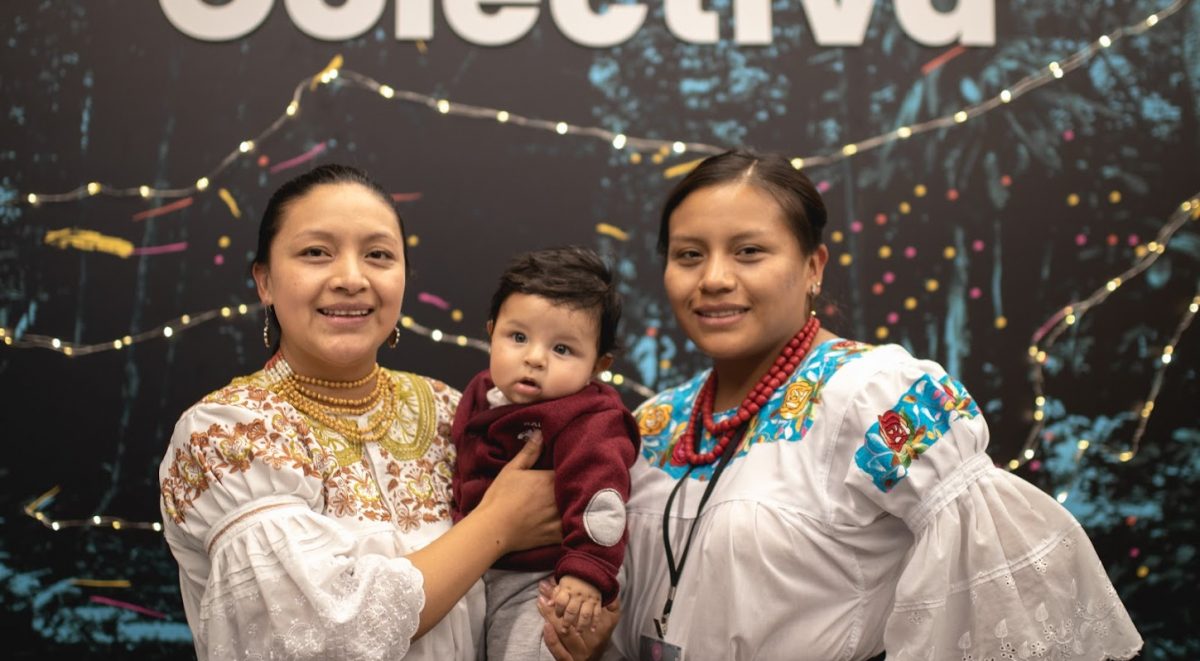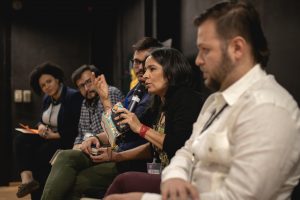
Voices from the South – August 2019
In this month’s “Voices from the South”, Ana Carolina Lourenço, regional advocacy coordinator for Fundación Ciudadanía Inteligente (Smart Citizen Foundation) in Chile, writes about the geopolitical, economic and social challenges facing Latin America.
Here she describes the need for a collective response, and gives more insight into the work that the new “COLECTIVA” movement is doing to mobilize collective action and democratize power in the region.
To thrive in the new times of uncertainty we must face our greatest dilemmas head on, aware that historical achievements are the result of collective action or what we call Colectiva!
Ana Carolina Lourenço

The world is more volatile and uncertain than ever. Geopolitical tensions and reactionary nationalism have gained strength. New transformational technologies have challenged dictates about the future of security, governance, and the economy. Despite increasing evidence of the effects of human action on the environment, the measures needed to contain them seem increasingly distant. As part of this global escalation, Latin America is experiencing one of its most turbulent decades.
Continually shaken by scandals of corruption, violence, environmental crime, worsening inequalities, and in the midst of a constant economic recession, Latin America is witnessing its lowest level of confidence in democracy. Populism and authoritarianism, our old acquaintances, resurface subsidizing attacks on civic space and freedoms. At this time we are also witnessing an unprecedented increase in refugee flows and internal displacement, with signs that it may get even worse.
The political scene is not very encouraging. In recent years the region has experienced some of its most heated presidential elections, from Mexico to Brazil, Latin Americans are increasingly polarized. The future of public security, digital rights, urban violence, the environment, and international cooperation has been at the center of the latest electoral debates – and in many cases citizenship has lost out.
In the face of this polarization, we can’t let up. Civil society gives many answers to this scenario. Latin America is experiencing a profound cultural moment with shifts toward public transparency and a wave of denunciations of crimes committed within the State. There are signs of civic resistance to reactionary nationalism, especially by cities and coalitions of activists. Citizen security efforts throughout Latin America continue to be robust, Colombia has put an end to its 53-year conflict, although it still needs to strive for peace.
Latin America is experiencing a profound cultural moment with shifts toward public transparency and a wave of denunciations of crimes committed within the State.
Ana Carolina Lourenço

Along these lines, the Smart Citizenship Foundation and Amnesty International last month together with human rights defenders from 14 countries coordinated advocacy efforts to reflect on the emerging threats and problems of Latin America. In Tlaxcala, Mexico in July 2019, COLECTIVA provided a space for meeting to exchange observations, knowledge and experiences in order to transform the reality we live into what we want. During the three day summit we explored four problems of extreme urgency identified in our community of activists and allies:
- Political violence: We reject and punish hate speech. Political leaders who defend human rights must be supported and never repressed or intimidated. We create a common agenda against political violence.
- Climate crisis: We have the opportunity to change the course of the Climate Crisis. We are working on strategies to safeguard the protection of our planet and stop global warming and protect the territory and its communities.
- Technology: Privacy and the protection of personal data in the exercise of active citizenship is fundamental. In Latin America, human rights defenders are called to combat technological surveillance while safeguarding human rights to privacy, access, and safety.
- Kleptocracy: How do we defend against the interests of a few hijacking the common good? We discuss how kleptocracy operates and how we can fight it. Colectiva exists to democratize power and engage an informed citizenry for increased public accountability.
These problems do not occur in isolation from each other, they are actually directly related, encompassing the public and private sphere, national and transnational. Nor are they unique to a country, people or region, but they manifest themselves in specific ways and impact different groups in each region, community and country. Being able to discuss this together has allowed us to find common points of action to avoid their worsening and to move beyond this toward advancing a rights agenda.
Our COLECTIVA initiative will continue to create more spaces for deep reflection, dialogue, and consensus building among activists who represent both the ideological and ethnic/racial and social diversity of all Latin America. We are convinced that knowledge of the world around us is indispensable in dealing with complex issues. While citizenship requires we help shape the future to make it less challenging.
Activism teaches us that the future has never been guaranteed or secure. The pendulum of history has never been ethical or fair. Antagonistic narratives will come, some more shrill than others. To thrive in the new times of uncertainty we must face our greatest dilemmas head on, aware that historical achievements are the result of collective action or what we call Colectiva!
Learn more in the following film from Fundación Ciudadanía Inteligente:
Born in Rio De Janeiro, Ana Carolina Lourenço has a master’s degree in Sociology from the State University of Rio De Janeiro with academic exchanges in Havana and Paris. In recent years, she has been working in collaboration with various social organizations and institutions of research in Latin America. Lourenço serves as the Regional Advocacy Coordinator at the Latin American based Smart Citizenship Foundation where she has worked since 2017.

